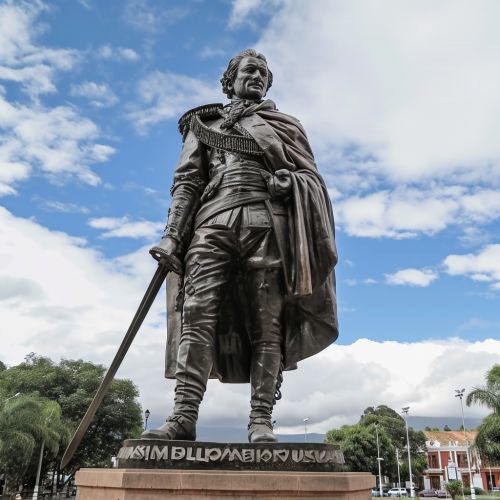Bolivarianism
Origins and Ideology
Bolivarianism is a political doctrine that derives its name and principles from Simón Bolívar, a Venezuelan military and political leader who played a crucial role in the independence of several South American countries from the Spanish Empire. Bolívar's ideals and his vision for a united Latin America have significantly influenced the political landscape of the region.
Bolívar's political philosophy was rooted in the Enlightenment ideals of liberty, equality, and fraternity. He believed in a strong central government to maintain order, a balance of powers, and the promotion of public education. He also advocated for the abolition of slavery and the rights of indigenous peoples. These principles form the core of Bolivarianism.


Bolivarianism in the 20th Century
In the 20th century, Bolivarianism became associated with a variety of political movements and governments in Latin America, particularly in Venezuela. It was used as a banner for political change, social justice, and anti-imperialism. The doctrine was often invoked by leaders seeking to establish a distinct Latin American identity and to challenge the influence of foreign powers in the region.
In the 1990s, the doctrine gained renewed prominence with the rise of Hugo Chávez in Venezuela. Chávez, a former military officer, launched a 'Bolivarian Revolution' aimed at implementing Bolívar's ideals. His government pursued policies of social welfare, land reform, and nationalization of key industries. Chávez also sought to build a regional alliance of like-minded nations, known as the Bolivarian Alliance for the Peoples of Our America (ALBA).
Bolivarianism in the 21st Century
In the 21st century, Bolivarianism continues to be a significant political force in Latin America. It remains a guiding ideology for the government of Venezuela under Nicolás Maduro, Chávez's successor. However, the doctrine has also been subject to criticism and controversy, particularly in relation to the economic and political crisis in Venezuela.
Despite these challenges, Bolivarianism continues to inspire political movements and leaders across Latin America. It is seen as a symbol of resistance against neoliberal economic policies and foreign intervention.
Criticisms and Controversies
Critics of Bolivarianism argue that the doctrine has been used to justify authoritarian practices and economic mismanagement. They point to the political and economic crisis in Venezuela as evidence of the failures of Bolivarianism. Critics also argue that the doctrine's emphasis on anti-imperialism often serves as a cover for anti-American sentiment.
However, supporters of Bolivarianism argue that the doctrine is a legitimate expression of Latin American sovereignty and self-determination. They contend that the problems in Venezuela are due to external factors, such as economic sanctions and foreign interference, rather than the inherent flaws of Bolivarianism.
Conclusion
Bolivarianism is a complex and multifaceted doctrine that has played a significant role in the political history of Latin America. Its impact can be seen in the policies of several governments in the region, as well as in the broader discourse of Latin American identity and sovereignty. Despite its controversies, Bolivarianism remains a potent symbol of resistance and change in Latin America.
